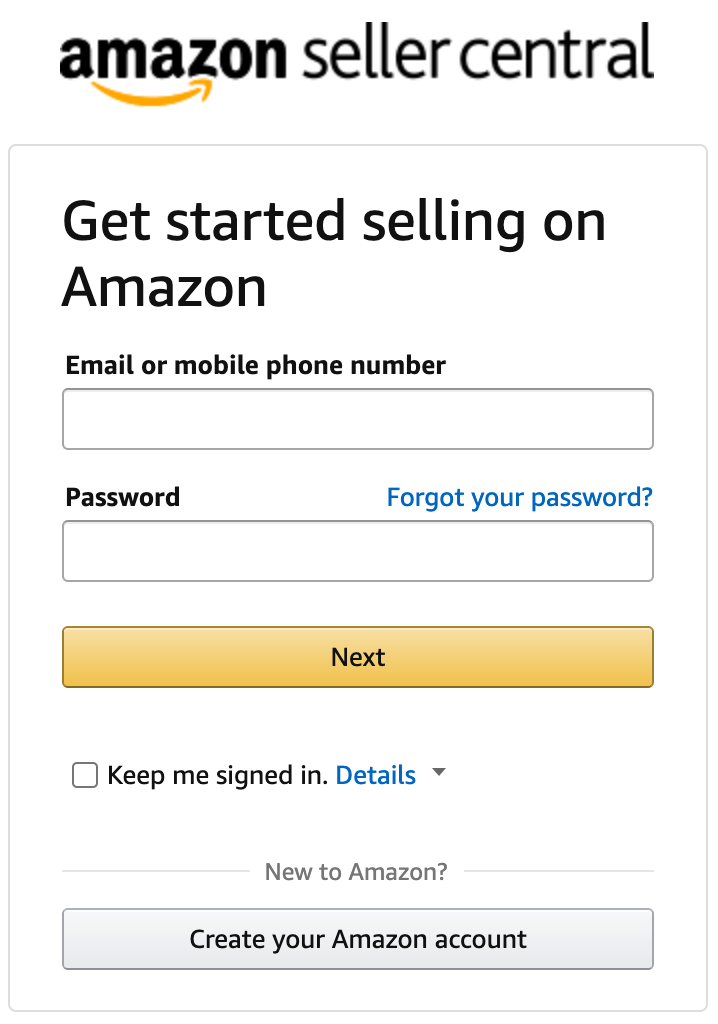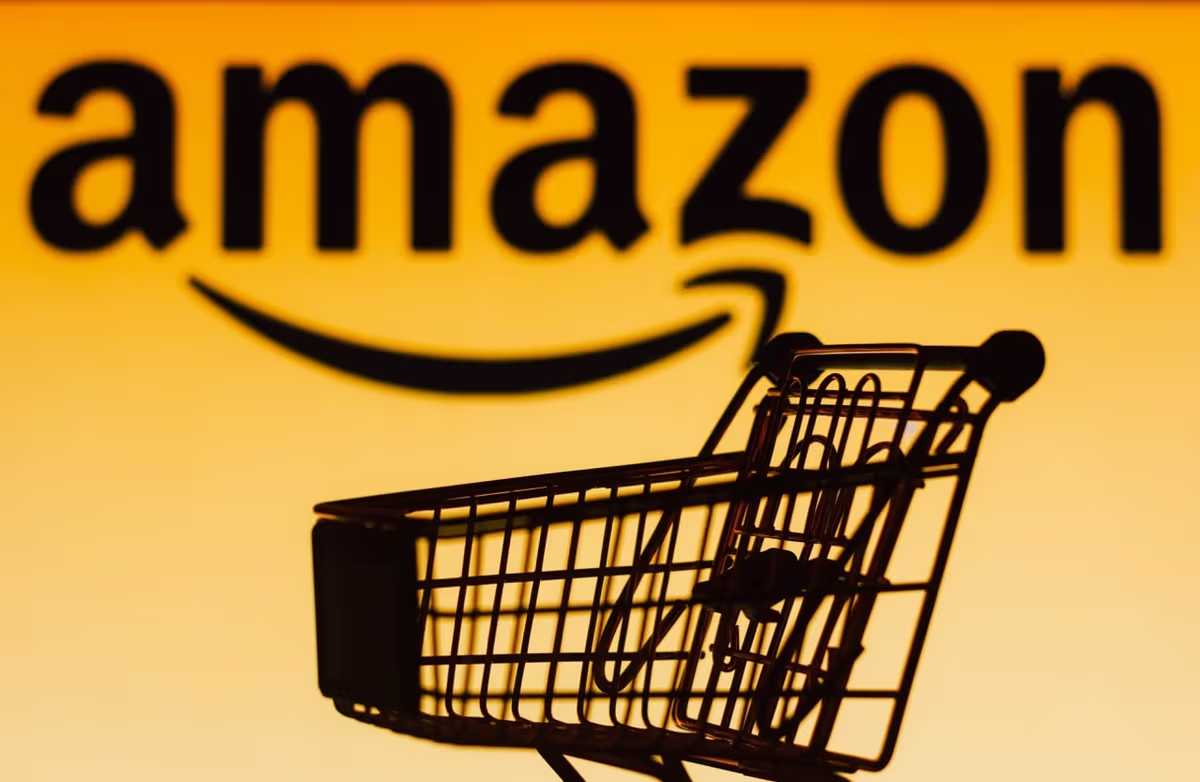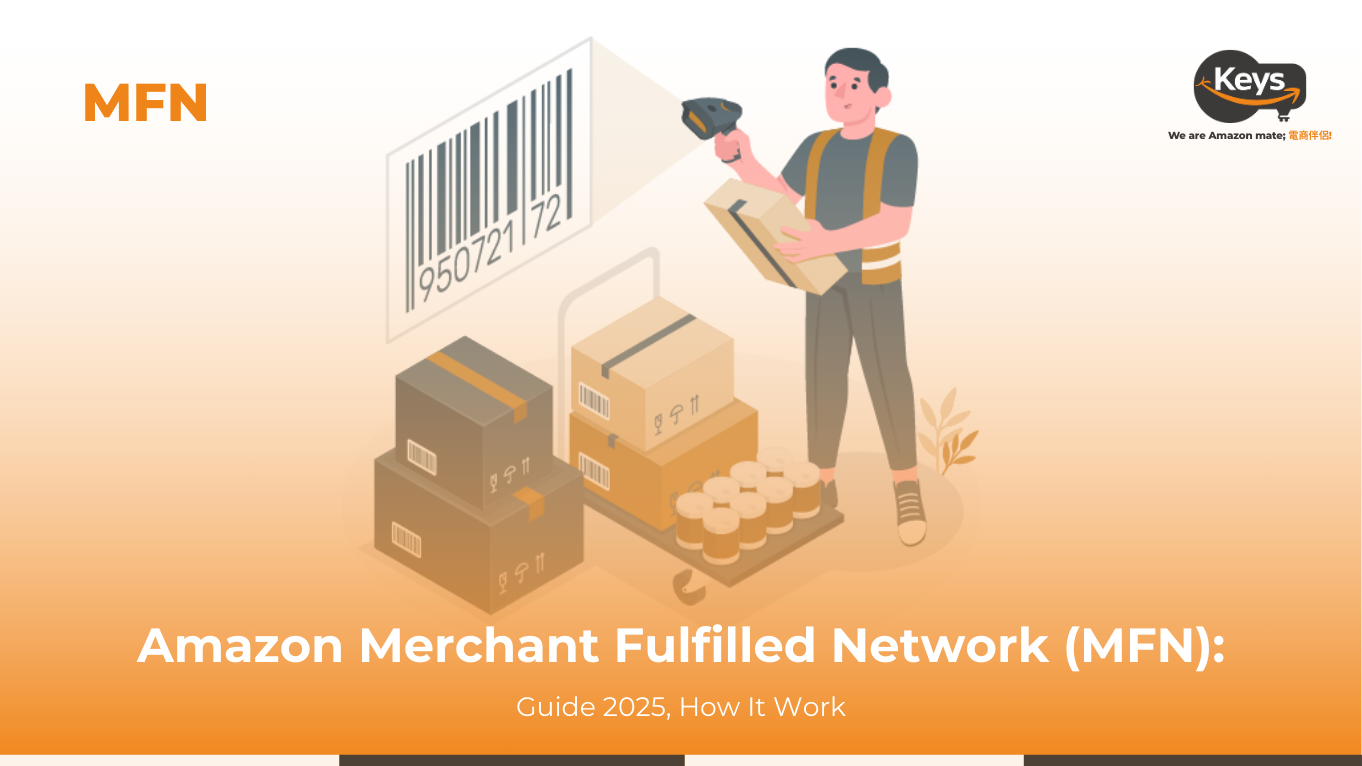The Merchant Fulfilled Network allows Amazon sellers to manage fulfillment independently without using Amazon’s warehouses. This model offers flexibility, cost control, and full ownership of the shipping process. While MFN is ideal for businesses with existing logistics capabilities, it requires reliable operations and customer service. In this guide, we’ll break down how Amazon MFN works, its pros and cons, and how to get started.
What is merchant fulfilled network Amazon MFN? Pros & Cons
The Merchant Fulfilled Network (MFN), also known as Fulfillment by Merchant (FBM), is a fulfillment method on Amazon where sellers are responsible for storing, packing, and shipping their products directly to customers. Unlike Fulfillment by Amazon (FBA), where Amazon handles logistics, MFN allows sellers to maintain control over their inventory and fulfillment processes.
Pros of Amazon MFN
- Control Over Fulfillment: Sellers have complete oversight of their inventory management, packaging, and shipping methods, allowing for customization and quality control.
- Cost-Effectiveness: MFN can be more economical for sellers who already have established logistics systems, as they avoid the fees associated with FBA.
- Flexibility: Sellers can quickly adapt their fulfillment strategies based on demand fluctuations, making it suitable for businesses with varying sales patterns.
- Direct Customer Interaction: MFN enables sellers to engage directly with customers, enhancing the customer experience through personalized service and direct handling of inquiries and returns.
Cons of Amazon MFN
- Limited Prime Eligibility: Products fulfilled through MFN are generally not eligible for Amazon Prime, which may reduce visibility and sales potential, as many customers prefer Prime-eligible items.
- Increased Responsibility: Sellers must manage all aspects of fulfillment, including shipping logistics and customer service, which can be challenging, especially during peak seasons.
- Potential for Lower Visibility: MFN products may not rank as highly in search results compared to FBA products, which can affect sales opportunities.
- Workforce Challenges: Smaller sellers may struggle with the demands of managing fulfillment and customer service, particularly during high order volumes.

MFN is a fulfillment method on Amazon where sellers are responsible for storing, packing, and shipping their products directly to customers (Source: Internet)
How does Amazon MFN work?
Amazon’s Merchant Fulfilled Network, also known as Fulfillment by Merchant , allows sellers to take full responsibility for storing, packing, and shipping their products directly to customers. Here’s how it works:
- Seller Responsibilities: In the MFN model, sellers manage all aspects of order fulfillment. This includes maintaining inventory, processing orders, packing products, and arranging shipping. Sellers must also handle customer service inquiries and returns.
- Listing Products: Sellers can list their products on Amazon and choose to fulfill orders through MFN. They must ensure that their listings comply with Amazon’s guidelines and provide accurate product information.
- Order Processing: When a customer places an order, the seller receives a notification and is responsible for confirming the shipment within the specified handling time. Sellers must provide tracking information to customers to keep them informed about their order status.
- Shipping Options: Sellers can choose their preferred shipping carriers and methods. They are responsible for shipping costs, which can vary based on the carrier and service level selected.
- Performance Metrics: Amazon evaluates MFN sellers based on various performance metrics, including order defect rate, late shipment rate, and valid tracking rate. Maintaining high performance is crucial to avoid account restrictions and ensure continued selling privileges.
- Customer Experience: Since sellers handle customer service directly, they have the opportunity to create a personalized shopping experience. However, they must also manage any issues that arise, such as returns or complaints.

Amazon MFN Requirements
To successfully operate under Amazon’s Merchant Fulfilled Network, sellers must meet specific requirements that ensure efficient logistics and a positive customer experience. Here are the key requirements:
- Shipping Performance: Sellers must ship over 99% of their orders on time. This includes adhering to the estimated delivery dates provided to customers.
- Order Cancellation Rate: The order cancellation rate must be less than 0.5%. This metric reflects the percentage of orders that sellers cancel after they have been placed.
- Use of Amazon Buy Shipping Services: Sellers are encouraged to use Amazon’s Buy Shipping Services for at least 99% of their orders. This helps ensure compliance with tracking and delivery standards.
- Delivery Coverage: Sellers must provide nationwide delivery coverage and support for weekend deliveries, including Saturday and Sunday.
- Returns Policy Compliance: Sellers must agree to Amazon’s Returns Policy, ensuring that they handle returns in a manner consistent with Amazon’s guidelines.
- Customer Service: All customer inquiries and complaints must be addressed by the seller, ensuring a high level of customer service throughout the fulfillment process.
- Performance Metrics: Amazon evaluates sellers based on several performance indicators, including order defect rate, late shipment rate, valid tracking rate, on-time delivery rate, and return dissatisfaction rate. Maintaining these metrics is crucial for account health and continued selling privileges.
How to enroll in Amazon MFN?
Enrolling in Amazon’s Merchant Fulfilled Network is a straightforward process that allows sellers to manage their own shipping and fulfillment. Here are the steps to get started:
- Login or Register for Amazon Seller Central: If you are not already a seller on Amazon, you need to create an account on Amazon Seller Central (https://sellercentral.amazon.com/). This platform is essential for managing your listings and orders.
- Choose the MFN Option: During the registration process or in your account settings, select the option to fulfill orders through the Merchant Fulfilled Network. This indicates that you will handle shipping and customer service independently.
- Submit Required Documentation: Complete any necessary documentation required by Amazon. This may include tax information and business verification documents to ensure compliance with Amazon’s policies .
- Set Up Your Shipping Settings: Configure your shipping settings in Seller Central. This includes defining shipping rates, handling times, and delivery options. Ensure that you can meet Amazon’s performance metrics, such as on-time shipping and valid tracking rates.
- List Your Products: Once your account is set up, you can start listing your products. Make sure to provide accurate descriptions, images, and shipping information to attract customers.
- Manage Orders: After your products are listed, you will receive notifications for orders. You are responsible for processing these orders, shipping them on time, and providing tracking information to customers.
- Monitor Performance Metrics: Regularly check your performance metrics in Seller Central to ensure compliance with Amazon’s standards. This includes monitoring your order defect rate, late shipment rate, and customer feedback.

How much does fulfillment by merchant Amazon MFN cost?
The costs associated with Amazon’s Merchant Fulfilled Network, also known as Fulfillment by Merchant, can vary based on several factors. Here’s a breakdown of the primary costs involved:
- Monthly Subscription Fee:
- Professional Selling Plan: $39.99 per month. This plan is suitable for sellers who plan to sell more than 40 items per month.
- Individual Selling Plan: No monthly fee, but sellers pay a per-item fee for each sale.
- Per Item Selling Fee:
- For sellers using the Individual Selling Plan, there is a fee of $0.99 for each product sold. Professional sellers do not incur this fee.
- Referral Fees:
- Amazon charges a referral fee on each sale, which typically ranges from 6% to 45% of the total sales price, depending on the product category. Most categories have a referral fee of around 15%.
- Shipping Costs:
- Unlike Fulfillment by Amazon (FBA), MFN sellers are responsible for their own shipping costs. Sellers can either absorb these costs or pass them on to customers, depending on their pricing strategy.
- Additional Costs:
- Sellers may incur additional costs related to packaging, handling, and returns. These costs can vary based on the seller’s logistics setup and the nature of the products sold.
Amazon FBM vs. Amazon MFN vs. Amazon FBA
When choosing a fulfillment method on Amazon, sellers can select from Fulfillment by Amazon, Fulfillment by Merchant (FBM), and the Merchant Fulfilled Network. Below is a detailed comparison of these three options:
| Feature | Amazon FBA | Amazon FBM | Amazon MFN |
| Overview | Amazon handles storage, packing, shipping, and customer service. | Sellers manage their own inventory, packing, and shipping. | Essentially the same as FBM; sellers fulfill orders themselves. |
| Cost Structure | Monthly subscription fee ($39.99 for Professional Plan), fulfillment fees based on item size and weight, and referral fees. | No monthly fees for Individual Plan; referral fees apply, plus shipping costs borne by the seller. | Similar to FBM; sellers incur shipping and referral fees. |
| Shipping Speed | Offers Prime shipping with fast delivery options. | Shipping speed depends on the seller’s logistics capabilities. | Shipping speed also depends on the seller’s logistics. |
| Customer Service | Amazon provides customer service and handles returns. | Sellers are responsible for all customer service and return processes. | Sellers manage customer service and returns, similar to FBM. |
Should your business use Amazon MFN?
Using Amazon’s Merchant Fulfilled Network can be a strategic choice for certain businesses, particularly those that prioritize control and flexibility in their fulfillment processes. Here are some key factors to consider:
- Control Over Fulfillment: MFN allows sellers to manage their own inventory, packaging, and shipping, providing greater control over the customer experience and branding.
- Cost-Effectiveness: For businesses with established logistics, MFN can be more economical than Fulfillment by Amazon (FBA), as it avoids the higher fees associated with FBA, such as storage and fulfillment costs.
- Flexibility: MFN offers the flexibility to adapt shipping methods and inventory management based on demand fluctuations, which can be beneficial for sellers with varying sales patterns.
- Direct Customer Interaction: Sellers using MFN handle customer service directly, allowing for personalized communication and potentially enhancing customer satisfaction.

Using Amazon’s Merchant Fulfilled Network can be a strategic choice for certain businesses (Source: Internet)
Simplify MFN: Fast, Efficient, and Affordable with Keys Logistics
Keys Logistics delivers end-to-end fulfillment solutions tailored for Amazon’s Merchant Fulfilled Network, enabling sellers to manage their logistics with greater speed, efficiency, and cost control. Our extensive multimodal transport network – spanning air, sea, road, and rail – combined with global partnerships with UPS, FedEx, and DHL, ensures your orders are shipped reliably and on time.
With seamless integrations to major ecommerce platforms like Amazon, Shopify, and TikTok Shop, we streamline your fulfillment process while providing real-time tracking and inventory visibility. From high-volume apparel brands to startups in consumer electronics, Keys Logistics empowers businesses of all sizes to scale operations, reduce delivery times, and improve customer satisfaction – all while maintaining full control under the MFN model.
The Merchant Fulfilled Network offers Amazon sellers a flexible and cost-effective alternative to FBA, allowing full control over storage, packing, and shipping. While it requires strong operational capabilities and adherence to Amazon’s performance metrics, MFN is ideal for businesses with existing logistics infrastructure or those seeking greater fulfillment autonomy. Understanding how MFN works, its benefits, and how it compares to FBM and FBA will help you choose the right path for sustainable growth.
Looking to streamline your MFN operations with a reliable logistics partner? Contact us at Keys Logistics for fast, scalable, and fully integrated fulfillment support tailored to your business.












 Tiếng Việt
Tiếng Việt 中文 (中国)
中文 (中国)

